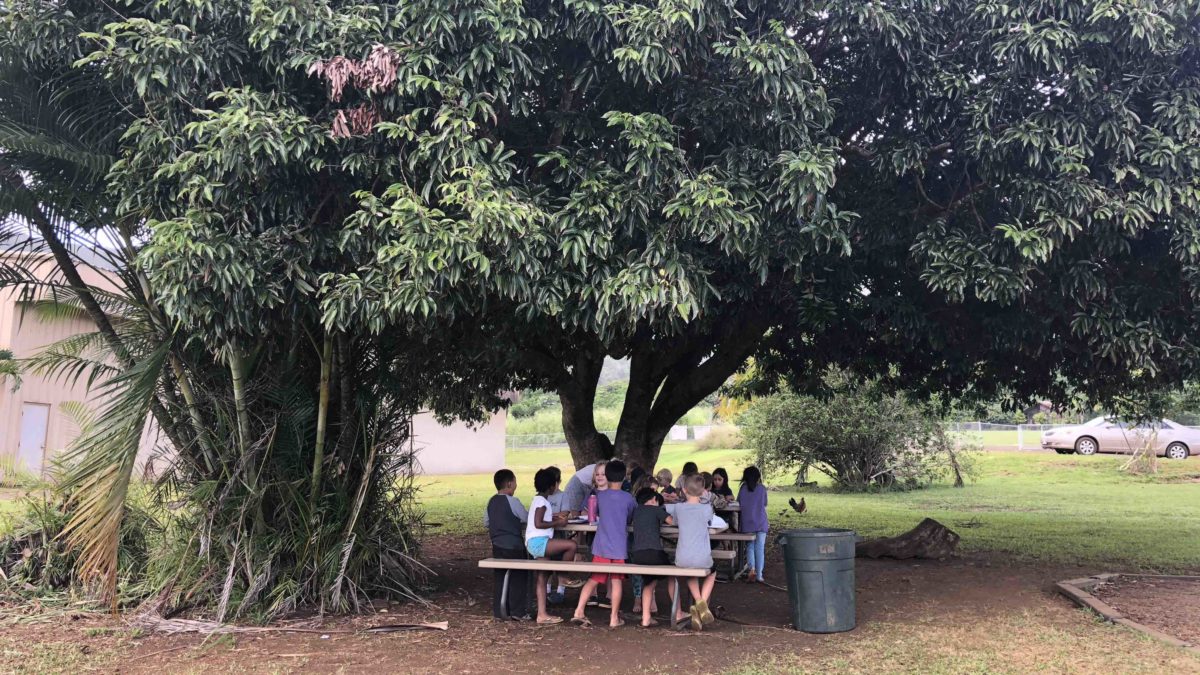I love to see learning “al fresco,” as I call it, at Alaka’i O Kaua’i. This week, during my “rounds,” I observed a class doing a writers’ workshop outside under the big tree by the playground, another class solving word problems during math with writing outside under the awnings, and several other classes composting, preparing the soil, and planting new seedlings outside on our beautiful grounds. They even covered the new plants with netting to protect them from the ravenous chickens!
Why is learning outside so important? An article entitled The Benefits of Learning Outside the Classroom states that direct experience outdoors is more motivating and has more impact and credibility.
The results from learning outside the classroom can be instantaneous as well as active and, therefore, impact behavior as well as tap into the learning styles of the more kinesthetic learner.
Through skilled teaching, interpretation or facilitation, learning outside the classroom can readily become a stimulating source of fascination, personal growth and can lead to breakthroughs in learning.
Active learning readily develops the learning skills of inquiry, experiment, feedback, reflection, review, communication, problem solving, an enterprising attitude and cooperative learning.
Quality learning experiences in “real” situations have the capacity to raise achievement across a range of subjects and to develop better personal and social skills. When these experiences are well planned, safely managed, and personalized to meet the needs of every child, they can:
- Improve academic achievement
- Provide a bridge to higher order learning
- Develop skills and independence in a widening range of environments
- Make learning more engaging and relevant to young people
- Develop active citizens and stewards of the environment
- Nurture creativity
- Provide opportunities for informal learning through play
- Reduce behavior problems and improve attendance
- Stimulate, inspire and improve motivation
- Develop the ability to deal with uncertainty
- Provide challenge and the opportunity to take acceptable levels of risk
- Improve young people’s attitudes


